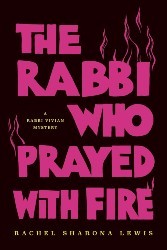For Felicity Becker, a bright high school student navigating the challenges of adolescence, living with a loving yet unconventional single parent is not always easy. But when a wedding enters the picture, Felicity — ever the perfectionist — jumps at the chance to organize a perfect event for her mother, Hannah, and her new stepfather. At the same time, Felicity’s romantic attraction to her friend, Nancy, threatens to destabilize her fragile sense of self.
The fact that Felicity’s peers accept her identification on the asexual spectrum does not rid her of internal conflicts. What’s more, her mother’s nonjudgmental attitude about personal choices still leaves areas of misunderstanding between them. When Felicity asserts that her focus on work is a positive quality, her mother wisely counters, “You have enough good traits … Live a little; take on some bad ones.” By abandoning generational stereotypes, Neil gives her characters, like Bubbe, greater depth.
Jewish grandmothers play an important role in contemporary fiction. Often, they represent a connection between the past and future. Sometimes they provide a perspective, and a certain distance, that a child’s parents lack. Felicity’s Bubbe defies all such categorization. She is certainly willing to privilege Felicity’s point of view over Hannah’s, but that tendency is more problematic than it might seem. Perhaps because of her own disappointment with Hannah’s career and parenting choices, Bubbe approves of the very qualities that leave her granddaughter most vulnerable. Neil makes it clear that Felicity’s mental health challenges are serious, taking both a physical and emotional toll, but Bubbe emphasizes achievement over psychological wholeness. The “full Jewish guilt trip” that she imposes on Hannah also shows up in her interactions with Felicity — although it comes in the form of praise. And Bubbe’s insistence on maintaining traditions, such as Shabbat dinner, is perplexing, given that she is largely non-practicing. This leads the reader to infer that her behaviors may be evidence of a dispute with Hannah more than affirmations of family and religion.
Love does not conquer all in Planning Perfect, but Felicity’s process of coming to terms with Nancy’s feelings for her, and her own response to them, does offer hope. In this sensitive exploration of adolescence, Neil suggests that learning to be honest with oneself is a crucial step towards adulthood. She paints a convincing portrait of one young woman’s path towards fulfillment as she struggles to be true to herself and those who care about her.
Emily Schneider writes about literature, feminism, and culture for Tablet, The Forward, The Horn Book, and other publications, and writes about children’s books on her blog. She has a Ph.D. in Romance Languages and Literatures.




